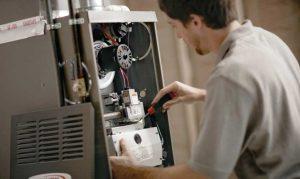Which Type of Furnace Filter Is Right for You?
Choosing the right furnace filter for your home can be a complicated process. Many people do not even realize the number of options that are available for furnace filters until it is time for replacement! By replacing your furnace’s filter on a regular basis, you can keep it as efficient and effective as possible. A dirty filter can reduce air quality and increase household allergens. Here are some tips to help you decide which filter is the best fit for your home and your furnace.

All about the MERV
Different furnace filters will have a different minimum efficiency reporting value (MERV). Generally, MERV’s measure the effectiveness of a filter and its ability to keep your home clear of dust and other household allergens. MERV ratings range from 1-20, with 1 being the least efficient and 20 being the most efficient. However, just because a filter has a high MERV does not necessarily mean it is the best fit. Be sure to check your homeowner's manual or furnace manual to make sure what MERV your furnace can handle. A filter that is too thick can impede the flow of air into your home, reducing efficiency.
Filter Materials: Fiberglass, Polyester, High-Efficiency, and Washable
The material of your filter will help to determine how efficiently your system will filter out contaminants and also how often it will need to be replaced.
- Fiberglass: Fiberglass filters are one of the cheapest options for furnace filters. However, these filters have the lowest MERV rating (usually between 1-4).
- Polyester: Polyester filters are often pleated, which helps the filter to be more efficient in capturing household allergens. These filters usually have a MERV of 5-13.
- High-Efficiency: High-Efficiency Particulate Air (HEPA) filters are extremely efficient and capture approximately 99% of household allergens. However, these filters can be very expensive and are too big for most residential systems.
- Washable: Although washable filters often have a low MERV, usually between 1-4, washable filters are reusable and more durable than most other filters. However, these filters can be difficult to dry completely and can harbor germs if not dried correctly.
Whatever you do, replace!
No matter which filter you decide is the best fit for your home, be sure to replace it often! Replacing your filter regularly will help your furnace run more efficiently and will lengthen the life of your HVAC system. If you have any further questions about furnace filters or heating maintenance, don’t hesitate to contact Duggan's One Hour Heating & Air Conditioning®! You can request more information with our online contact form or call today at (706) 914-1617.
